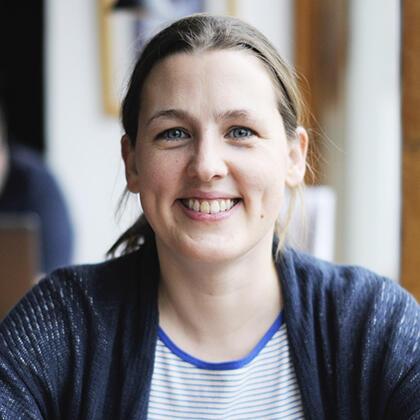Many puzzles have a long history, such as water pouring puzzles, where you need to measure (for example) one pint of water equipped only with an eight-pint and a five-pint jug. The mathematics behind the solution has many useful applications.
Meanwhile, paradoxes such as: “some men shave themselves; those that do not shave themselves are shaved by the barber: who shaves the barber?” lead us to deep questions about set theory.
The lecture discussed several examples and the related mathematics.
https://www.gresham.ac.uk/sites/default/files/transcript/2024-01-30-1800_Hart-T.pdf
References and Further Reading
- If you enjoy thinking about mathematical puzzles, you will be delighted by literally anything written by Martin Gardner. He inspired generations of mathematicians and puzzle enthusiasts, and regular events are held in his honour by the G4G (Gathering 4 Gardner) community. On the 21st of each month in the last couple of years, G4G has been hosting a virtual “Celebration of Mind” and everyone who loves mathematics, puzzles, literature, scepticism, and magic of all types is invited to join. https://www.gathering4gardner.org/
- Similarly, anything written by David Singmaster is sure to enchant. If you are interested in the history of recreational mathematics Professor Hart strongly recommends his two-volume Adventures in Recreational Mathematics (World Scientific, 2022). Not only does it describe hundreds of puzzles, their origins and solutions, but it also has an extensive bibliography of historical sources and hundreds of references if you want to dig deeper, so it’s an indispensable starting point.
- The British Society for the History of Mathematics has regular events and is planning a recreational mathematics conference in late 2024. If you join the society, you get access to the entire archive of its journal, which has regular articles on the history of recreational mathematics, including several by David Singmaster. https://www.bshm.ac.uk/
- They’re of a mature vintage nowadays but Professor Hart believes you can’t beat Raymond Smullyan’s books of logic conundrums – the liar paradox is just the start! Any one of these will give you days of enjoyable paradoxical puzzling: What Is the Name of This Book? (1978); This Book Needs No Title (1980); To Mock a Mockingbird (1985); and Forever Undecided (1987).
- Professor Hart mentioned that other kinds of games and puzzles had been discussed in some of her earlier Gresham lectures. These are as follows.
- The maths of Sudoku & Latin squares: https://www.gresham.ac.uk/watch-now/maths-sudoku
- The maths of board games: https://www.gresham.ac.uk/watch-now/maths-games
- Lottery-winning maths: https://www.gresham.ac.uk/watch-now/lottery-maths
- The maths of coins and currencies (for the Fibonacci “thirty birds” problem https://www.gresham.ac.uk/watch-now/maths-coins)
A note on images used in the lecture
To the best of Professor Hart’s knowledge all the images used are either in the public domain, or may be used for educational purposes under fair use rules, or were created by Professor Hart.
© Professor Sarah Hart 2024
Professor Sarah Hart

- Professor of Geometry (2020 – )
Sarah Hart is the first woman Professor of Geometry at Gresham College, and was appointed in 2020. She is Professor Emerita of Mathematics at Birkbeck, University of London.
She studied at Oxford and Manchester, gaining her PhD in 2000. Postdoctoral research and teaching followed, including a prestigious Engineering and Physical Sciences Research Council Fellowship, before she was appointed to a lectureship at Birkbeck in 2004. She became Professor of Mathematics there in 2013, and served in various management roles including as Head of Mathematics and Statistics, Assistant Dean, and Programme Director for the MSc Mathematics.
Her academic publications have been mainly in the area of pure mathematics known as group theory, which has many applications both inside and outside of mathematics, for example in coding theory and cryptography. She is actively involved in the British Society for the History of Mathematics, and has served a three-year term as President of the Society from 2021-2023.
Professor Hart is passionate about communicating mathematics and is a sought-after public speaker. She is particularly interested in the links between mathematics, culture and creativity: many of her public lectures and talks in schools relate to these topics. Her book Once Upon a Prime: the Wondrous Connections between Mathematics and Literature, was published in 2023, and has been positively reviewed in the press, including The Sunday Times, The Observer, The Economist, The New York Times, The Washington Post and the Wall Street Journal.
Read more about Sarah Hart in Qantat Magazine
https://www.bbk.ac.uk/our-staff/profile/8004985/sarah-hart